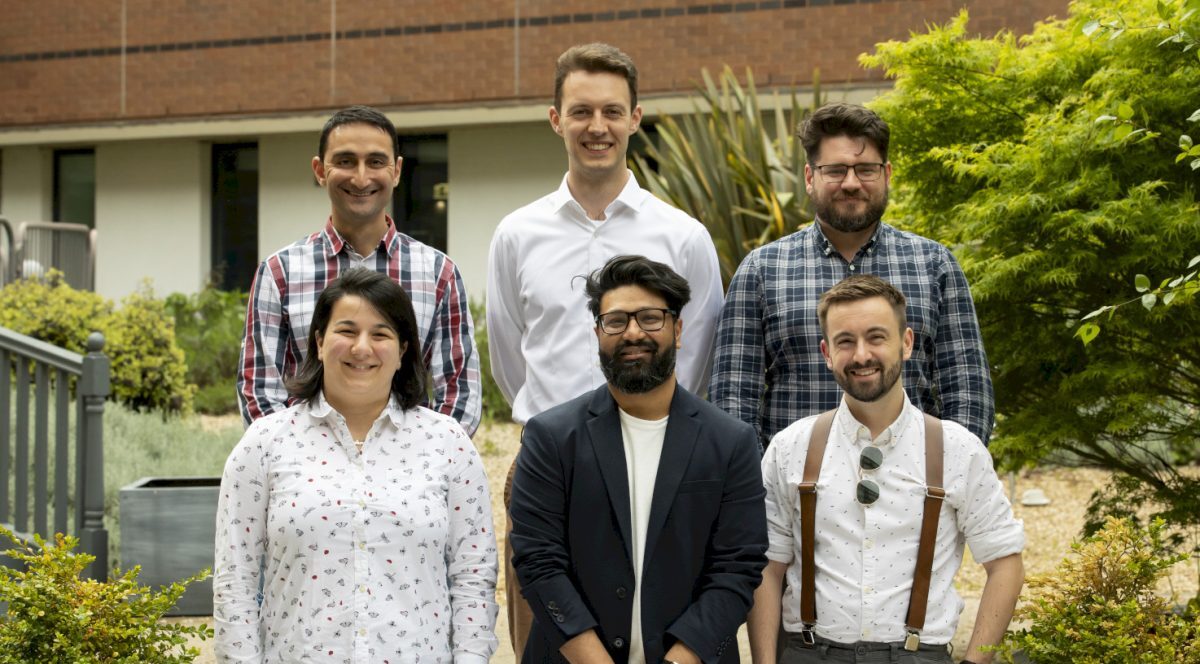SEARCH
Enter your search term below:
Close
Enter your search term below:

WORLD LEADING BUSINESS SUPPORT

The first of its kind to champion the biofilm industry and the first to be delivered alongside leading research centre – NBIC – it’s an accelerated version of the well-established Innovate UK Innovation to Commercialisation of University Research (ICURe) programme. It will leverage an ecosystem of businesses and investors from both NBIC and SETsquared’s ecosystem to enable the teams to ‘get out of the lab’ and validate their commercially promising research over eight weeks.
Biofilms are made of numerous living micro-organisms, such as bacteria or fungi, evolving and growing as a collective. Research has shown that when these micro-organisms group together to form a biofilm, it is much more than just a collection of micro-organisms but can be seen as a new material or film. These biofilms can be harmful or helpful depending on the application. Applied research on biofilms is important and can have significant implications cutting across a wide variety of industries, from health and food, water, and wastewater, to marine and the built environment. Uses range widely from fighting antibiotic resistance, to engineering anti-clogging pipes.
Karen Brooks, Programme Director, SETsquared says: “This is a one-of-a-kind opportunity for biofilm innovators to validate the market for their products or services, tap into leading sector knowledge, expert guidance, and an ecosystem of research institutes, investors, and businesses from the sector. Furthermore, they will have the opportunity to access up to £20k worth of funding to be used for market validation activities. Within just a few months, I look forward to seeing the outcomes from this accelerated programme in this exciting field of innovation.”
Jo Slater-Jefferies, Operations Director, NBIC says: “In a recent study, we estimated the total economic significance of biofilms to be more than $5,000bn, which demonstrated the huge impact of biofilms on our global economy. Our mission here at NBIC is to catalyse biofilms research to achieve breakthrough innovations which will solve the challenges that biofilms present to industry. Given its significance globally, supporting these early career researchers through ICURe to develop their commercially promising research which could have wide-ranging impacts, is a vitally important part of our work.”
Here’s an intro to the six commercially promising research projects that were selected to participate in the Biofilms ICURe Sprint cohort:
 BioPepTex
BioPepTex
Early Careers Researcher: Anish Parmar, University of Liverpool
Bacterial biofilms account for 80% of chronic and recurrent microbial infections in humans. BioPepTex has discovered and developed a novel antibiotic, to tackle multidrug resistant (MDR) Gram positive bacterial biofilm infections.
 METzero
METzero
Early Careers Researcher: Pavlina Theodosiou, Newcastle University
Microbial Electrochemical Technologies (METs) can recover energy and resources from wastewater, including electricity, hydrogen, and ammonia, and can shift wastewater treatment to a Net Zero. METzero has developed and manufactured the biggest pilot-scale MET in the UK which can treat 3 cubic metres of wastewater recovering hydrogen and ammonia.
 Wipe Warriors
Wipe Warriors
Early Careers Researcher: Michael Pascoe, Cardiff University
Disinfectant wipes consist of a non-woven textile impregnated with antimicrobials and since wipes are single-use, various forms of ‘regenerated cellulose’ are popular, as they may be sustainably sourced and are biodegradable. However, many general-use biocides stick to cellulose, preventing deposition onto surfaces and reducing biofilm eradication performance. Wipe Warriors has developed plastic-free materials with enhanced biocide compatibility, boosting wipe product performance without compromising on environmental standards.
 LCPaD
LCPaD
Early Careers Researcher: Shaun Robertson, University of Nottingham
Pseudomonas aeruginosa (P.a.) is a type of bacteria that forms biofilms resilient to treatment, resulting in chronic lung infections. There is a real clinical need for a simple, sensitive, and specific non-invasive point-of-care (POC) diagnostic method to detect P.a. in early pulmonary infections to enable prompt treatment. LCPaD has identified P.a. biomarker specific chemical entities for the early detection of this pathogen for the development of a simple, specific, and low cost POC diagnostic test.
 BioTryp Therapeutics
BioTryp Therapeutics
Early Careers Researcher: Ashraf Zarkan, University of Cambridge
Using cutting edge in silico screens combined with cellular and biochemical assays, Bio Tryp Therapeutics have identified novel tryptophanase inhibitors and confirmed their ability to inhibit biofilms in clinical strains of E. coli and help tackle antibiotic resistance. It aims to develop these compounds as antibiofilms that can be used with standard antibiotics to treat and/or prevent UTIs.
 MX-Raman
MX-Raman
Early Careers Researcher: Niall Hanrahan, University of Southampton
Mx-Raman aims to revolutionise rapid disease diagnosis and provide an effective commercial solution to combat anti-microbial resistance. It is developing a new methodology which uses Multi-laser Excited Raman Spectroscopy (MERS) for rapid and accurate identification of bacterial species and strains, and prediction of their antibiotic sensitivity from a target sample with minimal sample preparation. Further development of a combined hardware and software system would enable use in primary and secondary healthcare settings.
If you are interested in engaging with these teams or think you may wish to participate in a future ICURe programme please contact [email protected]
Get all the fresh insights first! Stay up-to-date with all the
latest investment news, blogs and all things SETsquared.
Close
Close